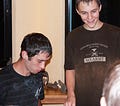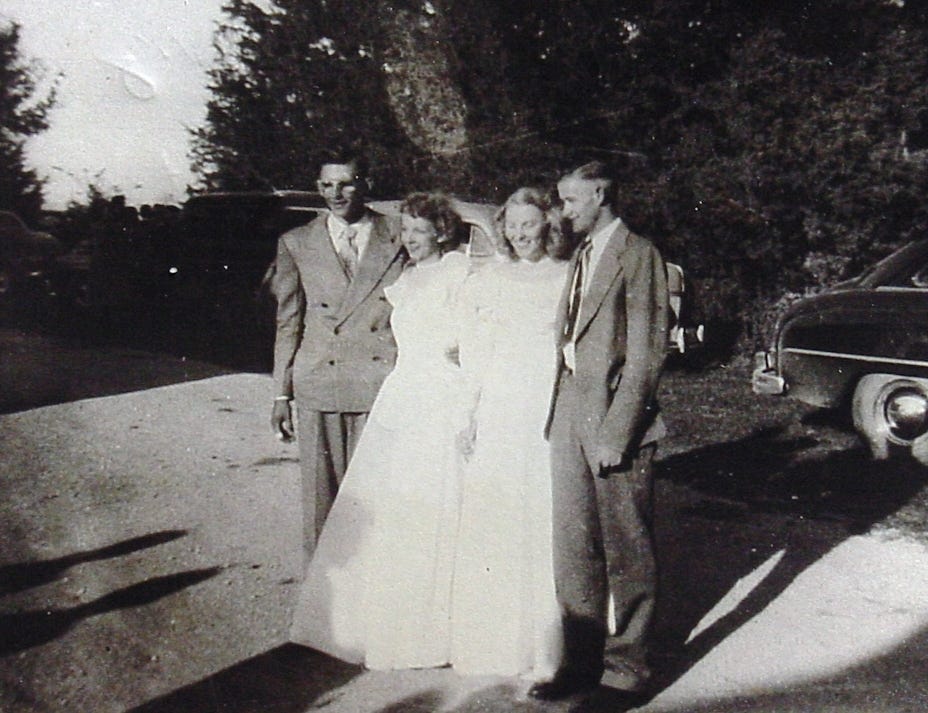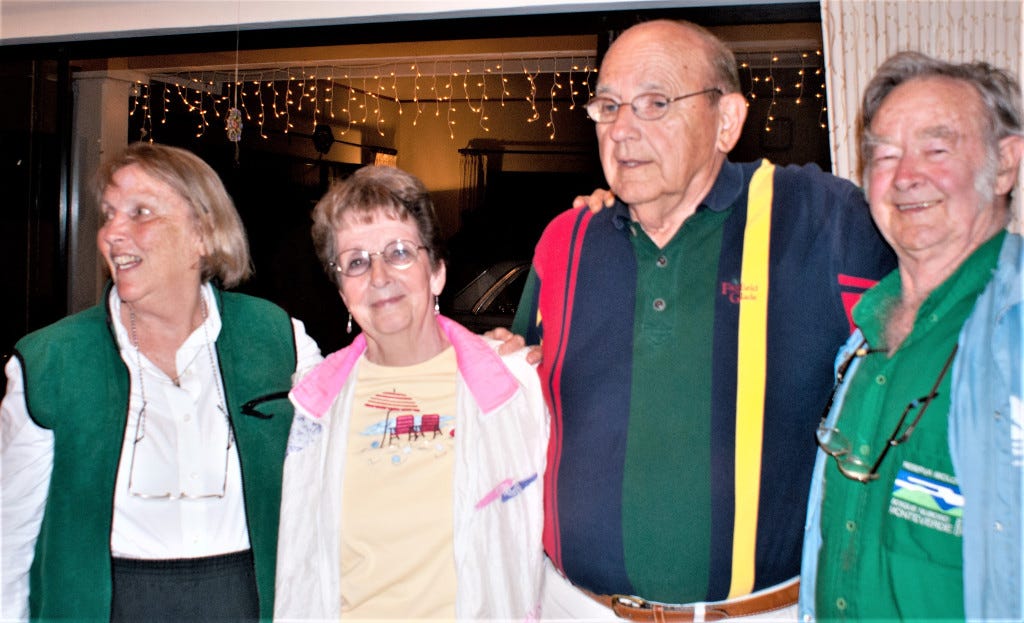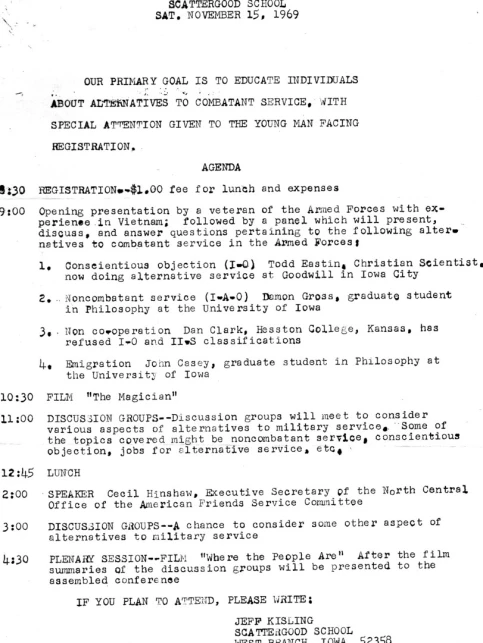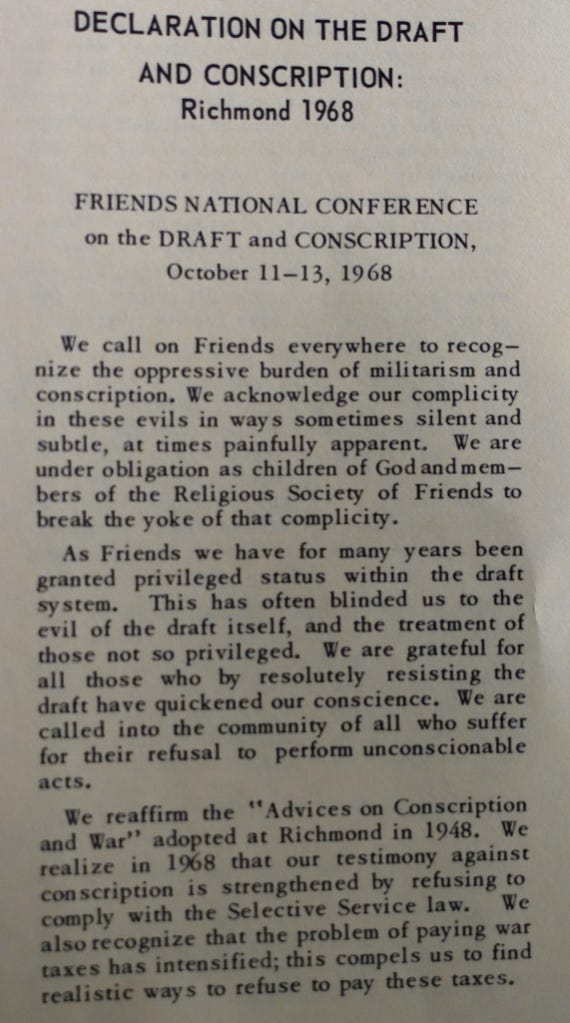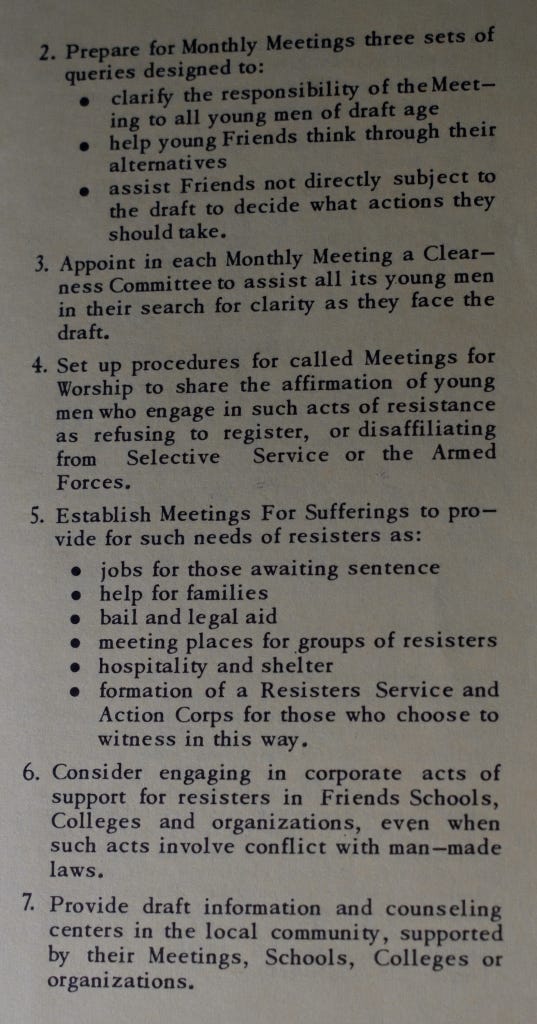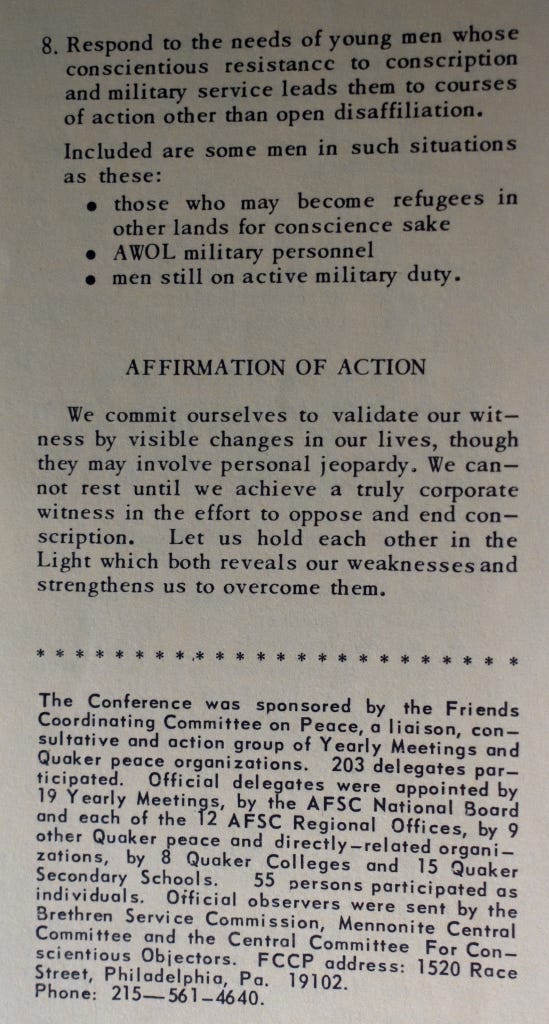I’ve recently been writing a number of articles related to the beginning, evolution, and current state of my foundational stories. We were challenged to do this at the annual sessions of Iowa Yearly Meeting (Conservative) this summer. https://quakersandreligioussocialism.com/foundational-stories/
I wanted to do that, in part, because my experience has been that stories are among the most powerful tools we have to affect change. And stories of the past can remind us of how earlier generations worked on many of the same things we struggle with today. (Which is also a bit discouraging).
Yesterday at Bear Creek Friends Meeting, we were talking about the Mendenhall family, and I said I would share the video (above) that I made of Bill Deutsch interviewing Mary Mendenhall about her life, including her time in the Monteverde Friends community in Costa Rica.
Photography is one of my foundational stories. I took the photos in this video during my only international trip, which was to Costa Rica, for the 60th anniversary of the double wedding of my mom and dad (Burt and Alberta Kisling) and Lucky and Wolfe Guindon. Lucky was my mother’s childhood best friend. The wedding took place at Bear Creek Friends meeting in 1950, (where we were meeting yesterday). The Guindon’s moved to Costa Rica shortly afterward for reasons Mary explains during the interview.
I love this tee shirt worn by my cousin Jeffrey. Costa Rica has not had an army since 1948.
In 2012 Paullina Friends met at the Mapleside meetinghouse, and told stories related to the meeting. Some of those videos are available at the links below. As you can see many of the stories relate to war and pacifism.
As I looked through my writings for related stories, I found this story by my uncle Bernard Standing, reporting on the annual sessions of Iowa Yearly Meeting (Conservative), in Friends Journal, 1966
Iowa Yearly Meeting (Conservative) Reported by BERNARD A. STANDING
IOWA Yearly Meeting of Friends (Conservative) held its sessions August 16-21 in the rural community of Mapleside near Paullina, Iowa. A family atmosphere prevailed, as evidenced by the parent-children groups arriving by car or seated in the meeting house, by the many young people at play on the volleyball court, and by the little children at the sand-pile and the swings. The mingling of Friends from urban communities with those from rural areas was a truly growing experience. Lincoln Meeting in eastern Nebraska has been added to this group within the past year. Visiting Friends were welcomed from Monteverde (Costa Rica), Concord (New Hampshire), and Media (Pennsylvania).
A dominant concern was the war in Vietnam. E. Raymond Wilson of the Friends Committee on National Legislation spoke on this topic to different age groups at several sessions. Various approaches to a peaceful settlement of the conflict were presented. The meeting gave its approval to the statement issued recently by Friends United Meeting, “An Appeal to End the War in Vietnam Now,” which calls for cessation of hostilities, negotiations, free elections, economic development of the land, and the help of all nations of the world to accomplish these results.
Boyd Trescott of the Friends World Committee for Consultation explained the function of that committee, placing special emphasis on the Friends World Conference to be held at Guilford College in North Carolina in 1967. Plans are being made to send seven delegates from Iowa Yearly Meeting.
Marian Baker, a young Friend from New Hampshire, told of the Young Friends’ plans for that conference and for subsequent visitation throughout the United States.
Other concerns were Indian welfare and race relations.
Projects of the North Central Region of the American Friends Service Committee were reported. The summer workshop in which several young people joined with the Musquakie Indians in preparing for the annual powwow at Tama, Iowa, was successful in fostering understanding and friendship between the two groups.
James Thomas, director of the Iowa Rights Commission, spoke one evening about the efforts of his group to achieve equal opportunities in housing and employment for minorities.
The annual report of Scattergood School at West Branch, Iowa, the Yearly Meeting’s major educational project, showed progress in the building program, including the construction of· a new science building. The purpose of the school is reflected in the lives of returning alumni.
At the last evening gathering, Cecil Hinshaw described possible vast changes in our material world in the near future. He challenged Friends to cope with these new situations by imaginative training of personnel in the fields of industry and education. Though change is inevitable, the eternal values of truth and love remain.
October I, 1966 FRIENDS JOURNAL
The date of that Friends Journal article was the year I first attended Scattergood Friends School. The Vietnam War was a large factor in the lives of the boys there, since we were required to register for the draft on our eighteenth birthday. Like many Iowa Quakers, I eventually decided to become a draft resister. Cecil Hinshaw of the American Friends Service Committee (AFSC) who spoke at the 1966 Yearly Meeting sessions (see above), also spoke at a draft conference held at Scattergood that fall.
Cecil Hinshaw, President of William Penn College, and my father–counseled many of these young Quaker men to resist the draft. And many have thanked him over the years for helping them come to the decision, in writing letters of support. My brother, Robert, struggled with the decision, and at the age of 18, he wrote to his draft board and told them he would not register for the draft and would be willing to go to prison for his act of conscience. He never even got a response from his draft board. We all asked ourselves WHY?? My father finally came up with the response that to give the son of Cecil Hinshaw any publicity, would only further the cost of passive resistance and refusal to serve in the armed services. So Robert lived for many years with the fear that he might be arrested for speeding, or some other misdemeanor, and it would be discovered that he did not have a draft card and the waiting game would over. He must have lost his fear of being arrested for speeding–for he became quite a speed demon on the highways and I did not want to ride with him!! I was very proud of him.
Eleanor Hinshaw Mullendore
As often happens, one story leads to another. I appreciated this powerful letter when I was struggling with my decision about the draft.
An Epistle to Friends Concerning Military Conscription
Dear Friends,
It has long been clear to most of us who are called Friends that war is contrary to the spirit of Christ and that we cannot participate in it. The refusal to participate in war begins with a refusal to bear arms. Some Friends choose to serve as noncombatants within the military. For most of us, however, refusal to participate in war also involves refusal to be part of the military itself, as an institution set up to wage war. Many, therefore, become conscientious objectors doing alternative service as civilians, or are deferred as students and workers in essential occupations.
Those of us who are joining in this epistle believe that cooperating with the draft, even as a recognized conscientious objector, makes one part of the power which forces our brothers into the military and into war. If we Friends believe that we are special beings and alone deserve to be exempted from war, we find that doing civilian service with conscription or keeping deferments as we pursue our professional careers are acceptable courses of action. But if we Friends really believe that war is wrong, that no man should become the executioner or victim of his brothers, then we will find it impossible to collaborate with the Selective Service System. We will risk being put in prison before we help turn men into murderers.
It matters little what men say they believe when their actions are inconsistent with their words. Thus we Friends may say that all war is wrong, but as long as Friends continue to collaborate in a system that forces men into war, our Peace Testimony will fail to speak to mankind.
Let our lives speak for our convictions. Let our lives show that we oppose not only our own participation in war, but any man’s participation in it. We can stop seeking deferments and exemptions, we can stop filling out Selective Service forms, we can refuse to obey induction and civilian work orders. We can refuse to register, or send back draft cards if we’ve already registered.
In our early history we Friends were known for our courage in living according to our convictions. At times during the 1600’s thousands of Quakers were in jails for refusing to pay any special respect to those in power, for worshiping in their own way, and for following the leadings of conscience. But we Friends need not fear we are alone today in our refusal to support mass murder. Up to three thousand Americans severed their relations with the draft at nation-wide draft card turn-ins during 1967 and 1968. There may still be other mass returns of cards, and we can always set our own dates.
We may not be able to change our government’s terrifying policy in Vietnam. But we can try to change our own lives. We must be ready to accept the sacrifices involved if we hope to make a real testimony for Peace. We must make Pacifism a way of life in a violent world.
We remain, in love of the Spirit, your Friends and brothers,
Don Laughlin
Roy Knight
Jeremy Mott
Ross Flanagan
Richard Boardman
James Brostol
George Lakey
Stephen Tatum
Herbert Nichols
Christopher Hodgkin
Jay Harker
Bob Eaton
Bill Medlin
Alan & Peter Blood.
Don Laughlin and Roy Knight, among those who signed that Epistle, were members of Iowa Yearly Meeting (Conservative). Both were imprisoned for their refusal to participate in the military draft. As were a number of other Quakers. Don collected some of those stories, which can be found here:
Young Quaker Men Facing War and Conscription
This also leads to the story about the draft conference I attended at Earlham College in 1968.
[Friends Coordinating Committee on Peace organized a Friends National Conference on the Draft and Conscription, held in Richmond, Indiana, Oct. 11-13, 1968. This declaration was used by many Friends who took the noncooperator position at their trials. It was reprinted in Quakers and the Draft, Charles Walker, editor: 1969.]
I was a student at Scattergood Friends School at the time, and a classmate and I were able to attend. Scattergood was one of 15 Quaker Secondary Schools represented.
